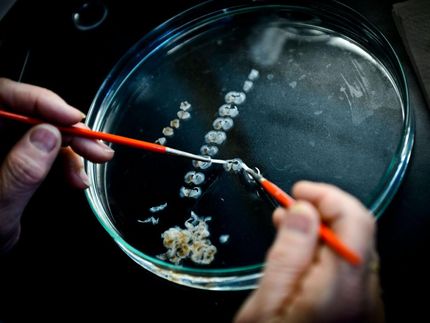Cytori Therapeutics Demonstrates Adipose Stem and Regenerative Cells Reduce Incidence of Arrhythmia after Heart Attacks
Cytori Therapeutics, Inc. announced preclinical data demonstrating that adipose stem and regenerative cell-based therapy following a heart attack in pigs is not associated with an increased risk of irregular heart rhythms, which can result in potentially life threatening complications from heart attacks. The data indicate that adipose stem and regenerative cells may reduce the incidence of these potentially fatal arrhythmias. The results of the study, conducted in collaboration with Tulane University, were presented at the German Cardiac Society Annual Conference.
"In addition to the improved functional benefit consistently observed in preclinical heart attack studies, this data suggest adipose stem and regenerative cells are not associated with increased risk of arrhythmias," said Marc H. Hedrick, M.D., President of Cytori Therapeutics. "This is an important finding due to the reported incidence of arrhythmias observed in clinical cardiac cell therapies derived from alternate cell sources. Additionally, it further supports our evaluation of this novel treatment in human clinical trials, which we intend to initiate this year."
As part of this study, adipose stem cells or a saline control injection were administered into infarcted subjects. The improvement in ejection fraction, capillary density and perfusion defect were reported earlier. In addition to these measured parameters, heart rhythms were constantly monitored throughout the eight week study period. At no point during this time was a difference in irregular heart beats between both groups observed, indicating that cell treated animals do not show an increase in potentially fatal arrhythmias. On the contrary, at the end of the study period, an electrophysiologic stimulation that artificially induces arrhythmias showed a significant longer cycle length, a measure of the electrical activity controlling heart contractions, in the cell treated group, which is indicative of a more organized and stable heart rhythm compared to the control group.
Other news from the department science

Get the life science industry in your inbox
By submitting this form you agree that LUMITOS AG will send you the newsletter(s) selected above by email. Your data will not be passed on to third parties. Your data will be stored and processed in accordance with our data protection regulations. LUMITOS may contact you by email for the purpose of advertising or market and opinion surveys. You can revoke your consent at any time without giving reasons to LUMITOS AG, Ernst-Augustin-Str. 2, 12489 Berlin, Germany or by e-mail at revoke@lumitos.com with effect for the future. In addition, each email contains a link to unsubscribe from the corresponding newsletter.
Most read news
More news from our other portals
Last viewed contents
Category:Medical_conditions_related_to_obesity
Chrysolaminarin
Sesquiterpene
Siegfried to introduce functional organization
Non_Ketonic_Hyperglycemic_coma




















































